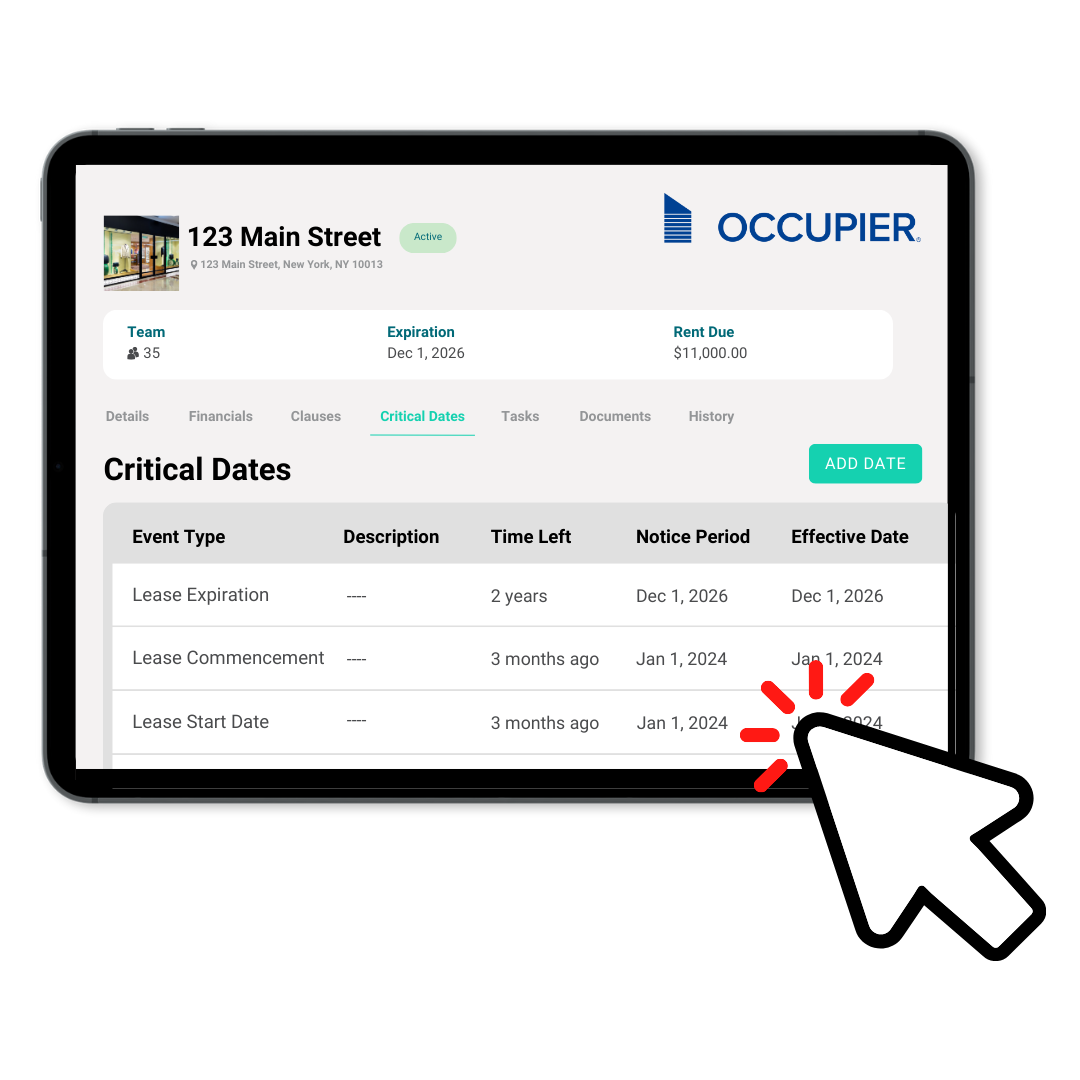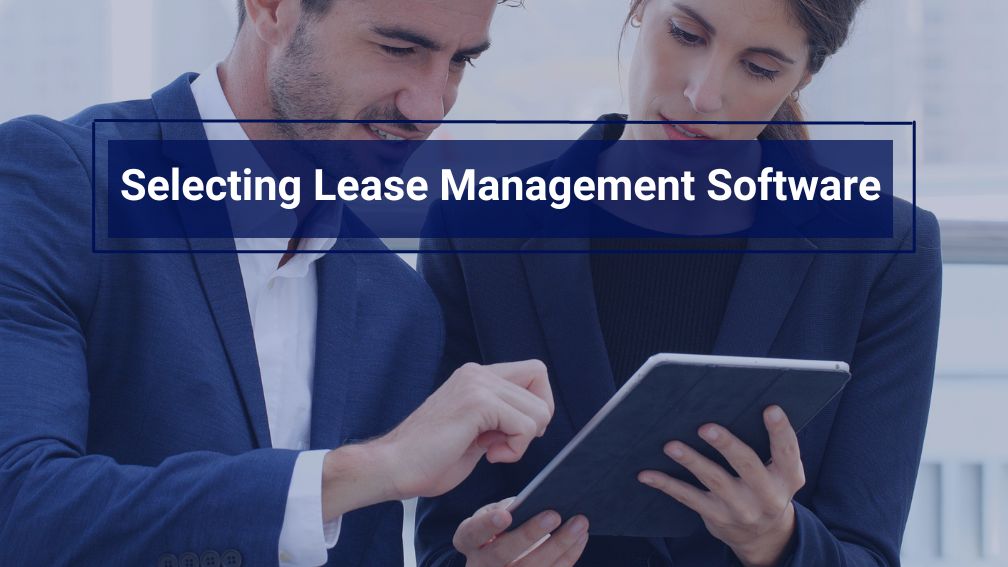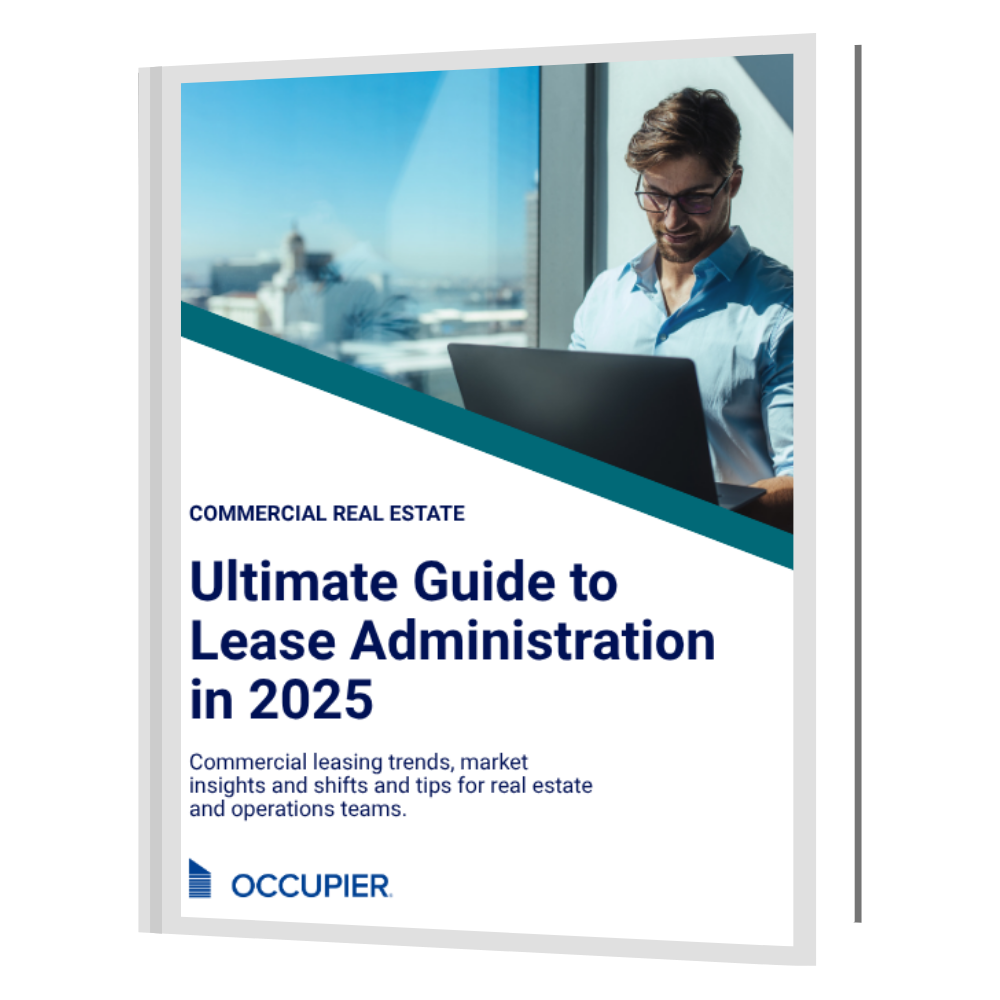Guide to Selecting the Right Lease Management Software
Last Updated on July 28, 2025 by
Technology has revolutionized how businesses manage complex processes. As industries evolve, organizations now rely on powerful and innovative enterprise software to make informed business decisions. For commercial tenants, lease management software has become essential. It streamlines real estate data, automates rent calculations, and improves accuracy across back-office operations. As a result, tenants are shifting away from legacy processes and toward purpose-built platforms that support scale and compliance.
Managing lease renewals, tenant improvement allowances, amortization schedules, and compliance obligations manually is no longer sustainable. In response, cloud-based software gives commercial real estate teams and finance leaders the real-time insights needed to manage leased assets across diverse portfolios efficiently.
Whether you manage office spaces, industrial assets, or a national footprint, the right lease tracking software supports strategic planning and operational excellence across your entire lease portfolio.
Why You Need Lease Management Software
For finance, operations, and real estate teams, justifying software spend requires demonstrating clear value. In many cases, the cost of inefficient lease administration is buried in data silos, manual errors, missed renewal windows, and disconnected workflows. Without a single platform to manage the entire leasing process, your business risks non-compliance, missed rent increases, and poor visibility into portfolio performance.
Additionally, tracking leases in spreadsheets makes it difficult to manage critical dates, maintenance requests, or evolving lease terms at scale. As your portfolio grows, these manual processes become time-consuming, error-prone, and increasingly difficult to audit. This lack of real-time insight delays key actions and slows down collaboration between teams.
By contrast, a robust lease administration platform eliminates manual data entry, centralizes document storage, and enables teams to manage renewals, clauses, and key milestones from one interface. From lease abstracts and subleasing terms to vendor coordination and rent schedules, a user-friendly platform like Occupier transforms day-to-day leasing tasks into a streamlined, repeatable process — all while improving accuracy and transparency across the organization.
Defining Your Lease Administration Needs
Selecting the right lease management platform starts with identifying your organization’s specific business needs. Regardless of your portfolio size, your software should support the entire lease lifecycle, reduce operational costs, and improve data integrity.
- Evaluate your current leasing process: If you’re using spreadsheets to manage maintenance tracking, critical dates, or subleasing options, you’re exposing your team to risk. Manual workflows limit lease performance and make accurate reporting difficult.
- Consider cross-functional collaboration: The ideal platform supports easy access for everyone — from the Real Estate Manager to the Senior Director of Finance. Built-in compliance tools, role-based permissions, and secure Document Storage improve regulatory compliance and cross-functional coordination.
- Prioritize stakeholder visibility: For companies managing complex lease lifecycles, visibility is key. Cloud-based property management software with real-time insights, centralized dashboards, and audit logs ensures greater visibility and smoother decision-making across departments.
- Build a scorecard of must-have features: Include ASC 842 support, space management tools, ERP system integrations, and scalable features for both mid-sized businesses and large enterprises. Evaluate each solution’s capabilities, vendor support, and history of adapting to market changes.
Must-Have Features for Scalable Lease Management
Once you’ve defined your lease administration needs, it’s time to evaluate the key features that will enable your team to manage the entire lease lifecycle with confidence. The right leasing software should combine automation, visibility, and robust functionality to drive operational efficiency and support smarter strategic decision-making across your real estate portfolio.
Task Management
With your requirements mapped out, it’s important to focus on the core capabilities that will future-proof your lease administration process. First and foremost, managing a commercial lease portfolio requires coordinated execution across departments. Your lease management solution should include intuitive task management capabilities that support workflows for renewals, expansions, tenant screening, and site selection. These workflows ensure that all stakeholders — from the Real Estate Manager to operations and finance — stay aligned and accountable throughout the lease lifecycle.
Automatic Notifications
Missing critical lease dates can lead to costly penalties or missed negotiation opportunities. Look for software that offers automatic notifications and real-time alerts tied to lease obligations such as rent increases, expirations, and compliance deadlines. Weekly digest emails and in-app reminders help reduce manual oversight while ensuring that lease events are never overlooked.
Centralized Document Management
A reliable document storage system is essential for lease administration. Your software should centralize all lease documents, amendments, and communications into a searchable, secure platform with audit trails and permission controls. Centralized access improves regulatory compliance, accelerates workflows, and makes it easier to share information with auditors, brokers, and internal teams — especially across multiple locations and a growing lease portfolio.
Integrations
Modern lease administration platforms must integrate with your broader tech stack. Look for seamless integration with ERP systems, financial reporting tools, and even fleet management or AP systems. This eliminates duplicate data entry, enhances data integrity, and ensures that changes to leases, such as modifications or renewals, automatically flow into your financial statements and Balance Sheet.
Cloud-Based Access
Cloud-based platforms offer flexibility, scalability, and peace of mind. With a cloud-based software suite, your team can access lease data from anywhere — improving collaboration, business continuity, and data security. Leading platforms offer built-in security & authentication, eliminating the need for costly IT infrastructure and manual updates.
Custom Reporting and Analytics
In addition to operational tools, access to on-demand financial reports and advanced analytics is critical for making data-driven decisions. Your software should offer customizable dashboards that allow you to track occupancy costs, lease performance, and real-time metrics across your real estate portfolio. These insights empower leadership to proactively manage risk, budget accurately, and make informed decisions about portfolio strategy and business growth.
User Experience and Scalability
Whether you’re a team of ten or scaling across regions, your lease management platform should offer a user-friendly platform that’s easy to adopt. Look for a vendor with tailored solutions that serve a wide range of company sizes — from mid-sized businesses to large enterprises. The platform should be intuitive enough for daily users yet powerful enough to meet the long-term needs of your evolving lease operations.
Evaluate Lease Management Software Vendors
Choosing lease management software isn’t just about features — it’s about long-term fit. You’re selecting a partner to help manage your entire lease portfolio, maintain compliance, and improve financial performance.
- Industry Experience: Prioritize vendors that specialize in commercial tenant needs. Companies like Occupier are industry leaders in providing dedicated lease accounting software for corporate real estate teams.
- Product Enhancements: Evaluate how frequently a vendor updates their platform. New lease accounting standards will emerge. Vendors who stay ahead with feature updates, usability improvements, and support for complex scenarios will offer the most value.
- Training and Ongoing Support: A great provider helps you during initial setup and beyond. Look for onboarding help, lease abstraction services, implementation services, training support, and customer service availability. If they publish case studies, documentation, and learning paths, that’s a plus.
Thinking About Switching Lease Software Platforms?
Already using lease management software but starting to feel its limitations? Many commercial tenants outgrow their current platform as their lease portfolio expands or business processes evolve. Legacy systems often struggle with usability, manual data entry, or lack critical features like customized reports, automated reminders, and maintenance tracking — all of which are essential for effective lease administration.
Although switching leasing software may feel like a big lift, with the right partner, the process can be smooth and highly valuable. Occupier offers a user-friendly interface, real-time updates, and seamless integrations with ERP systems. Our team has helped many companies make the leap successfully. Learn how in our blog on How to Switch Leasing Software Platforms Without the Headache.
A Complete Lease Management Software Solution
In conclusion, choosing lease management software is a strategic investment. You need a solution that offers valuable insights, seamless collaboration, and powerful automation — all on a single platform.
That’s why Occupier is purpose-built for commercial tenants. Our solution supports every phase of the leasing process — from site selection to lease accounting compliance. Finance teams, real estate leaders, and operations managers rely on Occupier to drive smarter decisions, reduce risk, and maximize value from their leased assets.
In today’s fast-moving real estate environment, adopting a platform that evolves with your organization is essential. From automated workflows and customized dashboards to secure document storage and real-time updates, Occupier empowers your team with the comprehensive tools needed to streamline operations and ensure compliance.

Product Tour
Take a self-guided tour and see how the fastest-growing commercial tenants leverage Occupier for lease management & lease accounting.

